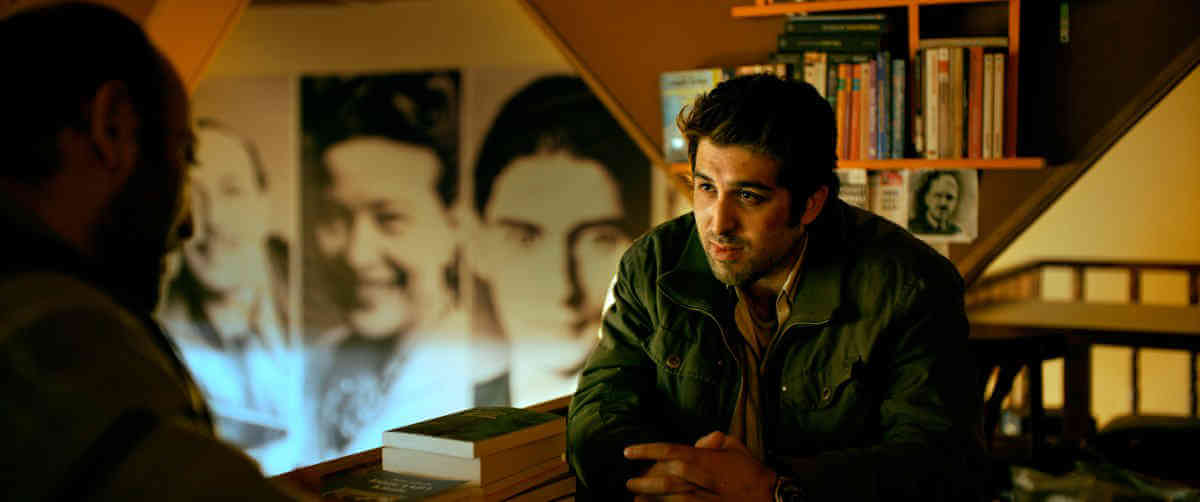In “The Wild Pear Tree,” Turkish director Nuri Bilge Ceylan creates his own time and space to relate a period in the life of Sinan (Dogu Demirkol), a young man who aspires to be a novelist. Changes in Sinan’s appearance and that of his father Idris (Murat Cemcir) suggest a story line lasting more than a few years, but the precise time frame is hazy. The film’s 188-minute length is crucial to its accomplishments. Spectators develop a sense of living and growing up along with Sinan that verges on complicity, and there is time for a religious discussion between Sinan and two imams that seems to last half an hour, shot with stunningly casual virtuosity. But the depiction of time in “The Wild Pear Tree” speeds up as Sinan ages, just as it seems to do in real life.
After graduating from college, Sinan returns to his hometown. He plans to save up enough money to publish his novel, “The Wild Pear Tree.” Staying with his father, he realizes that Idris has developed a serious addiction to gambling, which the older man’s job as a teacher can no longer support. The habit has alienated Sinan’s mother Asuman (Bennu Yildrimlar) from her husband. Sinan spends his time walking around the town, meeting with old friends, attempting to network to get his book in print, and growing increasingly bitter.
Ceylan’s direction makes all the spaces in his film, interior and exterior, feel lived in. He uses hallways and doors to create frames within frames masterfully. Gökhan Tiryaki’s cinematography captures rural landscapes evocatively. “The Wild Pear Tree” is tied to a very specific location, with a lot of historical baggage: these characters are walking over Troy and Gallipoli.
Critics reviewing “The Wild Pear Tree” have generally brought up plays by Arthur Miller and Eugene O’Neill rather than other films. Ceylan’s film has an epic examination of the minutiae of a young man’s life that reminded me of Arnaud Desplechin’s “My Sex Life… or How I Got Into An Argument” and that film’s obvious inspiration, Jean Eustache’s “The Mother and the Whore.” I’m guessing that there’s also something autobiographical to it, especially since parts were shot in Ceylan’s hometown of Cannakkale and the plot thread about Sinan’s novel could be a reflection on his struggle becoming a filmmaker.
The weakest element of “The Wild Pear Tree” is the way Sinan’s perspective occasionally flickers in and out of dreams and fantasy. We see one of his conversations twice. When he climbs his way into a huge wooden horse and pokes out a window, he instantly wakes up and viewers can see that he dreamed this image. That won’t be the film’s last dream. Ceylan seems influenced by Luis Buñuel, down to a reference to “L’Age D’Or.” But with the exception of one shot near the end, the surreal aspects of “The Wild Pear Tree” don’t add much to it. If Sinan is imagining portions of his life, the film doesn’t pursue the self-regarding implications there. The one scene devoted to extended conversation between Sinan and Asuman feels like a token attempt to explore their relationship in a film far more concerned with the connection between fathers and sons.
Ceylan won the top prize at Cannes with his 2014 film “Winter Sleep.” While “The Wild Pear Tree” may enjoy relatively minor exposure in the US, getting a two-week booking at Film Forum, his films always play in competition at the main European festivals. Without giving away the narrative, Sinan does not experience the same success in life. He expects a lot more than he receives.
Ultimately, “The Wild Pear Tree” reflects on learning to cope with disappointment. Its extended length and distended structure demand something more of our time than the usual film and more attention than distracted viewing with one eye on a smart phone. Ceylan has created an elaborate edifice, akin to that wooden horse Sinan dreams about exploring, to show how hard it can be to live up to one’s own ambitions. He also respects his characters enough to devote more than three hours to a thorough exploration of multi-generational disillusionment.
THE WILD PEAR TREE | Directed by Nuri Bilge Ceylan | The Cinema Guild | In Turkish with English subtitles | Opens Jan. 30 | Film Forum, 209 W. Houston St. | filmforum.org



































